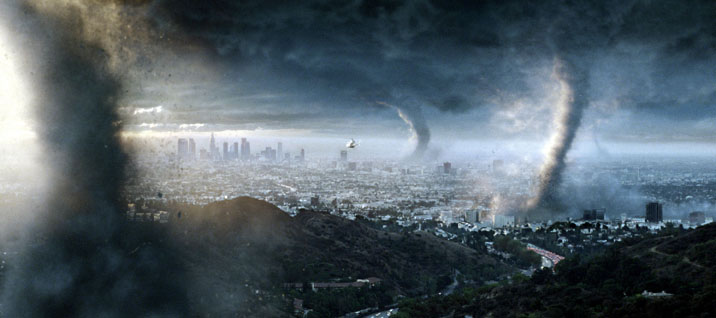But only very recently has the uncertainty of weather prediction also started to be exploited for political gain. And both sides do it. Warmer than 1980? Blame climate change. Fewer hurricanes? Blame climate change. And opponents of climate science engage in the same cherry-picking.
But even on Team Science it's a mistake to tout the NOAA as some leading organization when it comes to modeling. It's so far behind that when anti-science hippies and lawyers hoping to exploit them aren't claiming 5G cell phones will cause brain cancer, they are claiming modern cell phones will ruin NOAA data gathering. Their models are like the epidemiology or mouse studies of the atmospheric world; they can be considered exploratory, but you shouldn't raise a billion dollars based on their results.

The Day After Tomorrow set trust in climate science back 20 years, likely because so many journalists (you, Miles O'Brien) starting touting it as a real climate scenario. Snowmageddons, Snowpocalypse, Superstorms, Polar Vortices, and Weather Bombs sure don't help mobilize action, they instead decrease trust in scientists.
"The fact of the matter is, the weather isn't political: It doesn't vote, or care who's president, or have an agenda about which states it decimates," writes Lange, and that is correct for weather the same way it is for vaccines or agriculture or energy science. If we circle the wagons around every study because it's under our umbrella opponents will circle the wagons around equally bad models that support their beliefs. And the public won't trust anyone in policy if they can't trust us first.



Comments